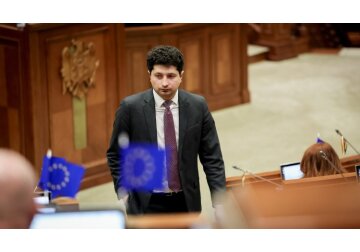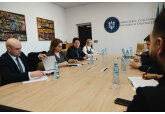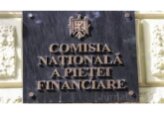
Moldovan citizens need to change their mentality and give up the practice of using cash for large transactions - Radu Marian.
Chairman of the parliamentary commission for economy, budget and finance stated this while commenting on the draft law on cash settlements and the measures envisaged by it to limit the value of cash transactions when buying apartments to 100 average salaries in the economy (about 71 thousand euros in 2024), and when buying cars - to 50 average salaries (about 35 thousand euros), passed by the parliament in the first reading. He noted that the vast majority of apartments and cars in Moldova are bought with cash. "The buyer comes with a bag full of tens of thousands of euros and gives it to the seller. And we, as a society, need to realize that this is not normal! It is unreliable, increases the risk of theft and loss of money and is time-consuming in case of withdrawing money from ATMs, etc.," Radu Marian said. He said the excess cash in the economy also means increased risks of money laundering and financing illegal activities, especially in the context of the Kremlin-induced hybrid warfare we have in the country right now. "Criminal groups, when they buy votes, bribe mayors, MPs, favor cash obtained illegally. There is a reason why in the EU and developed countries, remittances (especially large sums) are done without cash, by bank transfer or any other electronic method. It is easier, cheaper and safer. Recently, the EU set a limit of 10,000 euros for cash transactions, just as it is now in Romania," the chairman of the parliamentary commission for economy, budget and finance said. He noted that at the first stage, Moldova will set a limit on cash transactions of about 70 thousand euros for real estate transactions and 35 thousand euros for car purchases - a much higher limit than in the EU, specifically to give citizens time to adjust to the European rules. "I know why many citizens are skeptical about cashless transactions - because putting cash money in banks is very difficult, there is a lot of bureaucracy, a lot of supporting documents are required, and some of them are only accepted for a limited period of time. I want to inform you that we are working on some solutions that will simplify this process of income confirmation, solutions that will be ready by the time of the second reading vote on this bill," Radu Marian said. He also noted that our citizens are dissatisfied with the need to pay a transfer fee. "That's why the bill already provides for a commission ceiling of 0.1% of the transfer amount (from 0.8-1% as it is now for a bank transfer). I know that Diaspora representatives suffer more from excessive commissions for international transfers, but there is good news for you: Moldova has applied to join SEPA (Single Euro Payments Area), which will drastically reduce costs for international transfers: even for a transfer to buy an apartment in Moldova, the commission should not exceed 2-3 euros. I am sure that within 12 months, we will become a member of SEPA and will benefit from its advantages," the chairman of the parliamentary commission for economy, budget and finance said. "There is not a single developed country in the world where almost all citizens use cash for large transactions and take a full bag of money with them to buy an apartment or a car. We must also abandon this practice. It is equally true that the process of cashless transfers should be less bureaucratic and costly, and the government should intervene here, and we will, but at the same time the effort should come from citizens as well. I often hear from people that Moldovans need to change their mentality. Well, a good exercise to change the 'mentality' would be to stop using money bags when buying apartments and to pay electronically, as it happens in more developed countries than us," Radu Marian emphasized. // 02.02.2024 – InfoMarket







